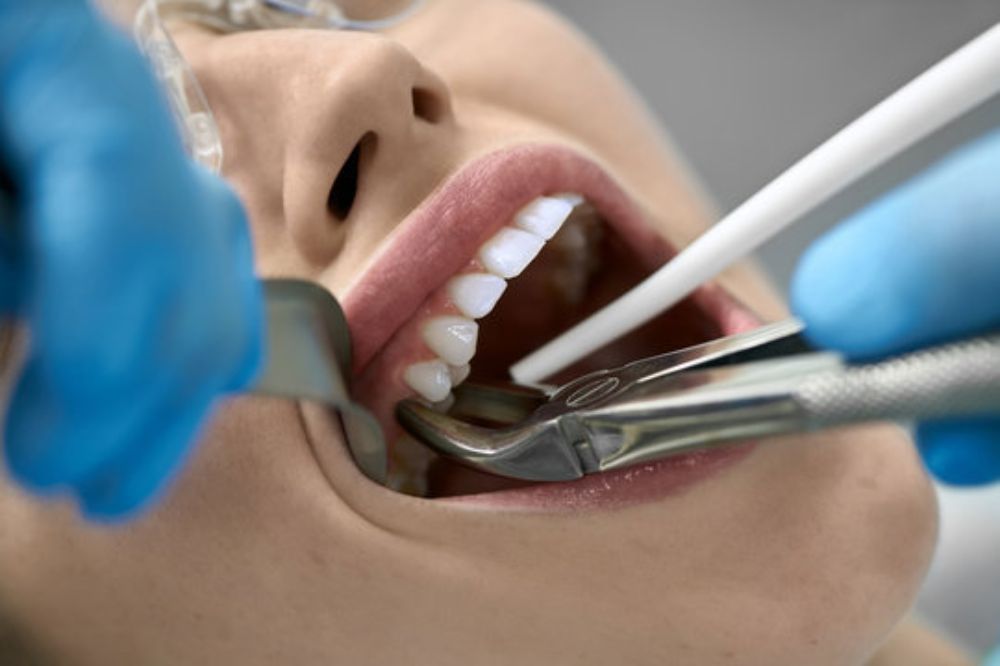One of the more prevalent procedures typically performed in dental care is tooth extractions in SW Calgary. Although the term may sound scary, understanding the process and why it is being done will allow you to realize that it is not as bad as you might think.
What Does it Mean When a Tooth is Extracted?
When a dentist mentions tooth extraction, this simply means the removal of a tooth from the alveolar bone. Dentists will only recommend tooth extraction if it is the healthiest option for your oral health.
Some of the scenarios that will require an extraction include:
- Severe damage or decay – When a filling or crown can’t repair the tooth.
- Infections—In the case of an infection that has affected the pulp, treatment may not be enough.
- Crowding—Sometimes a tooth is pulled to make room for braces/alignments.
- Impacted teeth—In most circumstances, wisdom teeth would fall under this category when they are unable to properly grow.
Why Would Someone Need Tooth Removal?
Tooth removal is more than just treating pain—it also prevents future problems. Common reasons for tooth removal include:
- Preventing the spread of infection.
- Reduction of crowding in the mouth.
- Managing discomfort from teeth that cannot grow in properly.
- Ensuring proper space for long-term restorative treatments.
What Different Kinds of Tooth Extractions Exist?
Generally, there are two types of extractions:
| Type of Extraction | What It Involves | When It Is Needed |
| Simple Extraction | A tooth removal above the gumline. | Loose or fractured teeth. |
| Surgical Extraction | Requires a small cut in the gum to reach the tooth. | For impacted or broken teeth. |
A tooth extraction dentist will walk you through which option is appropriate for your situation.
How Do Dentists Extract Teeth?
Curious about what happens during an extraction? Here is a simple overview of what you might expect when you are looking for a tooth extraction near you:
- Examination and X-ray—The dentist will assess the position and health of your tooth.
- Numbing of the area—The use of local anesthesia means you will feel no pain.
- Extraction of the tooth—The dentist will either loosen the tooth or perform the surgical extraction, depending on the type of extraction.
- Post-extraction instructions—You will receive instructions for caring for your mouth while it heals.
What Should You Expect After an Extraction?
Healing usually takes no time at all if you follow your dentist’s instructions. Here are some things you might notice and how to deal with them:
- Minor swelling or tenderness—Apply a cold compress.
- Light bleeding—You can stop light bleeding by biting down gently on gauze.
- Changes in diet—For the first few days, stick with soft foods like soup, yogurt, or smoothies.
- Recovery tips—Avoid smoking, drinking with straws, or excessive rinsing, as this can slow healing.
How Do You Know If You Should Visit a Dental Clinic for Teeth Extractions?
If you have a toothache, trouble chewing, or swelling around your gums, it’s likely time to see a dentist near you. Nine times out of ten, getting a dental checkup early will help you avoid needing to have a tooth removed, but making the right choice of extraction over restoration is important to your overall dental health.
Where Can You Find the Right Dentist for Tooth Extractions?
Choosing a professional option really matters. You can see a dentist in SW Calgary, and they will assess your concern and develop the safest and best course of action for your illness. Remember, extraction is not always the first option; dentists take extractions into account when it is the only option.
Gentle Tooth Extraction at Trinity Hills Dental
Whether you have been told you may need an extraction or if you are experiencing dental pain, Trinity Hills Dental can help you in a gentle manner. Our team will make sure that every step is as painless as possible, from examination to aftercare. Don’t wait and let the pain get worse; call today to schedule your appointment and take the first step to a confident, healthy smile.

